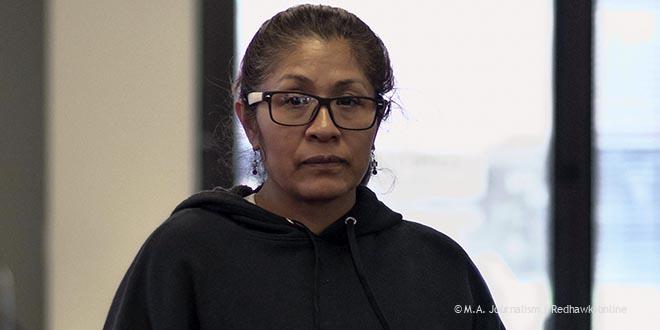Making our school home
What makes a school?
Is it the building or the students? Is it about the teachers? The answers to these questions are definitely “yes.”
But a school is not only those things. What about the unheralded, underhyped people who make a big, if quietly essential, impact on our community?
Meet Evelia Barrera.
Barrera has been on building maintenance staff at Minnehaha for 15 years. Most days, she juggles three jobs and studies as she continues to work toward her GED. She cleaned houses weekly for 25 years, and has worked four years at Concordia University, where she is a janitorial supervisor.
She described her day as 80 percent work – spending half that time at MA and the half at Concordia.
Barrera’s impact on the school goes beyond merely her role cleaning the building. Anne Calvin, Minnehaha Academy Spanish teacher, describes Barrera as “kindhearted, joyful, incredibly hard-working, generous.” She said Barrera serves as inspiration in her hard work and humility.
“We are all blessed by her gracious smile, work ethic, and tender heart,” said Calvin. “I don’t think we realize how much seeing Evelia’s smile and benefiting from her hard work are a part of our daily routines.”
Among Barrera’s biggest goals are academic achievements. She continues her education and works to gain a GED in hopes of becoming a Spanish language educator.
“I make breakfast, I go to school in the morning for my English classes for my GED. It is very busy…then I come here,” she explained. “I finished my high school and three years of college in Mexico, but it’s very different here.”
Barrera finds opportunities to extend her learning to our classrooms. Her job at MA allows her to practice language skills and gain experience in a real-world setting. “[In the future I’ll] probably still working here part time at Minnehaha. I will be working with little kids. This is my plan to finish my school and help little kids with Spanish.”
Her stories of growing up and of her family in Mexico are what she said shape her life today, specifically in the lessons they instilled in her.
“My grandma [impacted me most],” she said. “Because she always took care of me and gave me good advice: how life is difficult in the future and how life is easy when you make life happy by working hard, respect, and being responsible with your work and other activities. Be honest with people. That’s what I learned from her.”
Her grandmother was also a catalyst for her education and pushed her to be independent, both things that she highly values into the present.
“My dad didn’t want me to go to school,” she explained. “My grandma said, ‘Yes, she has to go to school because she has to be educated for the future. We don’t know if she will have a good husband or not, so she’s going to take care of herself, be independent.'”
Her experience as an immigrant also heavily impacted her life today. She cited learning a new language and being immersed in a new culture as some of the causes of these changes.
“Probably the most important: to learn a new culture and meet new people is hard. What was the most important when I came here, working with the students at Minnehaha. …We have to respect other people. If I clean they have to be respectful, be polite, be nice as students.”
Her advice for teens today relates mostly to education. She strongly advocated for learning. Education is an investment for the future and as a means of securing independence.
“Go to school. Go to college. Be educated because it is a more important point because many people will respect you and probably you have better pay and less work and time for your family and for you.”
Her son, Jorge Rojas is a junior at the school. He describes his mother as “loving, caring, generous, and helpful.” These words seem to reverberate across the responses when describing her.
“Any time anyone would need any help, other students or my friends here at school, she’s just really willing to help with anything from Spanish homework to opening a door to cleaning up a bag or something like that she’s willing to help,” said Rojas.
Short term, her goal is to limit her workload to one job and spend more time with family.
“I’m boring when I’m not working. I think: Wow, what can I do? My children, they’re grown up. They go out. But I can not go out, have fun, go to dances and things like that. I fix my house. This is my favorite time.”
Barrera will continue to impact our school with her caring, thoughtful presence, whether it be cleaning the classrooms, lending a helping hand, or teaching Spanish.
“She cares a lot about the school; she works really hard,” said Rojas. “She cares about all the students. If you ever need help or anything like that you can go straight to her and talk to her or ask for anything.”

